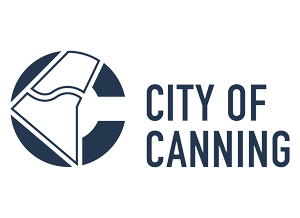Our journey
What council has achieved in the past in energy efficiency, renewable energy or broader sustainability
Efficiency
- Building performance reviews are undertaken across key facilities. Recommendations on how to improve energy efficiency are a key outcome.
- A database of energy consumption is currently being developed, to enable the analysis of trends and identification of areas where energy efficiency can be improved.
- Energy efficiency improvements to lighting systems in council owned facilities. Over 50% of the City’s carpark lighting has been upgraded to LED lighting.
- Improvements to the operation of air conditioning resulting in electricity cost saving of over $10,000 each year.
Renewables
- Solar panels were first installed in 2013 and we are progressively increasing our solar energy generation capacity. Currently, the City has a total of 357kW of solar photovoltaic systems installed, with more planned for the future.
- Geothermal bores have been installed at the City’s two Leisure facilities.
- The City has committed to align itself with the West Australian State’s target of 50% diversion of waste to landfill by 2020 which will result reduced emissions. Furthermore, the City has reaffirmed its commitment to the Phoenix WtE Plant – Australia’s first waste-to-energy plant. When fully commissioned, this will divert as much as 37,734 tonnes of waste that currently goes to landfill, and use it as a refuse derived fuel source to produce a renewable energy.
Transport
- Reduction in parking requirements in Town Planning Scheme No. 40.
- Walking and Cycling Strategy created with community consultation to inform provision of end of trip facilities, cycle paths etc.
- Provision of 4 electric vehicle charging stations for future EV fleet at administration building.
- The City will be taking delivery of 6 new refuse trucks that exceed the Euro 6 emissions standards. Canning will be one of the first local governments in WA that will have a sizable fleet of trucks that meet the current best-practice emissions standards.
Work together and Influence
- The City has a Sustainability Policy. The first principle adopted in the policy “to reduce and eventually eliminate dependence on fossil fuels and wasteful use of scares metals and minerals”.
- The organisation has culture of sustainability by training sustainability champions, providing departmental workshops and running cross departmental working groups to progress a more sustainable agenda.
- The City offers Sustainability grants to community groups and not for profits which have been used for efficiency upgrades and solar battery storage.
- Incentives through the form of discounts are available for residents and business on a range of efficient products and building/home audits through the Switch Your Thinking Rewards for Residents program.
- Educational workshops and programs are offered to residents and schools and early learning centres.
- A “build smart live smart guide” has recently been created to help residents renovate and build more sustainable homes.
What council hopes to achieve in the future in energy efficiency, renewable energy or broader sustainability
- Development of baseline energy consumption data, and the setting of targets to reduce energy consumption.
- Continued installation of renewable energy infrastructure and replacement of existing fixtures with more efficient alternatives, on City facilities.
- Improve facilitation uptake of renewable energy and energy efficiency initiatives and educational programs in the community.
- Endorsement of an Incentive Based Development Assessment policy which encourages more efficient new builds.
- Bicycle parking requirements adopted by the Town Planning Scheme No. 40 and provision of electric car charging stations for use by the community.
- Replace the remaining waste truck fleet with new diesel-electric hybrid vehicles if they become commercially viable.
- Replace the existing fleet of traditional fossil based fuel, pool cars with high efficiency ones or even a pure electric fleet of vehicles.
Why council joined the Cities Power Partnership
The City of Canning takes the issues of climate change seriously and our community has expressed a clear value for sustainable development and pride in our natural environment specifically the Canning River and local bushland. As such the City has assessed local risks and has adopted a range of actions to mitigate and adapt to a changing climate. We have joined the Cities Power Partnership as we see this as an excellent opportunity to partner with other local governments and experts to share knowledge and access funding and incentives. We look forward to adding our knowledge and experience to the national knowledge hub and increase the profile for our work in renewable energy and energy efficiency. More so we hope this partnership inspires leadership, develops more collective action and motivates our community and neighbouring councils to do the same.
